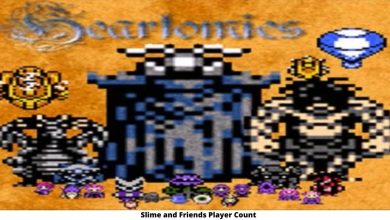The king of ‘slobs vs. snobs’: Ivan Reitman reinvented a Hollywood genre, then did it again
Ivan Reitman was a filmmaker who almost exclusively made light comedies and, as he sometimes pointed out himself, that type of film doesn’t usually get a lot of respect. But when the Canadian producer-director died suddenly on Feb. 14 at the age of 75, it was clear that, among his colleagues, he had the respect that critics sometimes denied him.
Dan Aykroyd, his “Ghostbusters” star and fellow alumnus of Citytv in Toronto, called him “one of the last great creative talents of the big screen era.” Todd Phillips, a comedy director (“The Hangover”) who graduated to Oscar-nominated dramas like “Joker,” praised Reitman for his mentorship and for producing his first two films, while Jon Hurwitz, creator of the series “Cobra Kai,” listed Reitman’s films, calling them “a legacy of classics.”
Reitman broke into Hollywood as producer of the 1978 smash hit “National Lampoon’s Animal House.” His earlier work in Canada had included horror films; most famously he produced David Cronenberg’s “Shivers.” He also worked as a theatre producer, scoring a big hit with the Broadway musical “The Magic Show,” in which the lead, magician Doug Henning, couldn’t sing, dance or act (the other characters carried that while he did his magic tricks). But it was “Animal House” that defined Reitman’s career from then on — not to mention redefining film comedy.
With its story of an underdog college fraternity fighting an evil dean and an even more evil upper-class frat house, “Animal House” might be one of the most imitated comedies ever made. Reitman himself directed two of the most successful imitators.
“Meatballs,” the highest-grossing Canadian-made film ever, starred Bill Murray as a counsellor at an underdog summer camp fighting an evil upper-class camp. It was followed by “Stripes,” starring Murray and “Animal House” writer Harold Ramis as a couple of slackers who join the U.S. army, break all the rules and get rewarded for it.
These comedies are usually summed up with the phrase “slobs vs. snobs,” where our main characters are hardly heroic, but we root for them because they’re in revolt against ossified institutions like the university system and the military. Reitman was still in his 30s and he filled the movies with other young comedic talents from “Saturday Night Live” and “SCTV,” like Murray, Ramis and John Candy (who became internationally famous for his role in “Stripes”).
These films, with their anti-authority attitude and seemingly improvisatory style, brought in huge numbers of young male viewers, a demographic that hadn’t been easy to lure into movie theatres. The writer Joe Queenan fumed in Movieline magazine that sophisticated adult comedies had been replaced by “the cheeseball, adolescent comedy” of “Murray, Chase, Aykroyd, Belushi, Candy, Moranis, Ramis,” nearly all regular collaborators of Ivan Reitman’s. Hollywood comedy had become at least partly his invention.
When you start a trend, though, you can easily start to flounder once the trend is over. That’s why “Ghostbusters” was not only Reitman’s most popular film as a director but his cleverest choice as a producer. Murray, Ramis and Aykroyd played characters who were recognizably similar to the frat boys of “Animal House” but with a twist: they’re all university professors who get fired from their jobs after they become convinced that ghosts are real. Instead of changing the system from within, they start their own business, aiming to use their scientific know-how to exterminate paranormal creatures.
This was unmistakably “Animal House” for the 1980s, when it finally became cool to sell out and make money. It was also Reitman’s way of combining that kind of comedy with the family-friendly summer blockbuster. Like the films of Steven Spielberg and George Lucas, “Ghostbusters” had elaborate, expensive special effects and a feel-good ending in which evil entities are defeated. It was less raunchy and more sentimental than the earlier comedies, but still had enough of their sarcasm and anti-authority attitude to seem hip.
The mix worked and “Ghostbusters” beat Spielberg’s Indiana Jones sequel and “Gremlins” to become the biggest hit of 1984.
“Ghostbusters” also saw Reitman and his colleagues following their audience from “Meatballs” and “Stripes.” The kids who saw “Animal House” were now older and thinking about making money and building a future, so the characters from “Ghostbusters” (and its less successful 1989 sequel) spoke to them: You can be yuppies, become a business success and still be recognizably similar to your rebellious youthful self.
Reitman’s next reinvention was in an unlikely collaboration with Arnold Schwarzenegger, who was looking to reach beyond his action-movie audience. The future governor of California made two hits with Reitman, both combining comedy with action, and both in their own way about family.
In “Twins” (1988), Schwarzenegger must get to know his long-lost fraternal twin brother, played by Danny DeVito. “Kindergarten Cop,” as the title implies, made him a cop who goes undercover as a kindergarten teacher and the experience helps him recover from a failed marriage. Reitman also produced “Stop! Or My Mom Will Shoot!” (1992), about a cop whose mother comes back into his life; Schwarzenegger, canny as always, didn’t like the script, but pretended to be interested in it so Reitman could sign up America’s other favourite tough guy, Sylvester Stallone.
These movies, again, seemed to age along with the viewers who had made Reitman rich. The countercultural elements were gone and so were the attempts at hipness. Reitman was making films about career men discovering there was something missing from their lives, like raising children or connecting with the relatives you haven’t seen in a while. The guys who went to see “Animal House” now were, or wanted to be, family men and Reitman still knew how to reach them.
No artist can stay current forever, though. Though Reitman had another hit with the 1993 political comedy “Dave,” a throwback to the sentimental comedies of Frank Capra, his subsequent films suggested that he was less certain of how to keep up with the times. The gimmick comedy “Junior” (1994) pinned all its laughs on the idea of Schwarzenegger getting pregnant. “Fathers’ Day,” with Billy Crystal and Robin Williams as two men who both think they’re the father of a teenage boy, flopped; apparently “Animal House” viewers weren’t willing to think of themselves as quite that old.
Still, even after Reitman stopped being a driving force in American movie comedy, he never stopped having hits. He moved past the image of a director of “guy” movies with “No Strings Attached,” a 2011 romantic comedy with Natalie Portman and Ashton Kutcher, which became a hit on the strength of female viewers. And he produced and creatively controlled “Space Jam” (1996), the Michael Jordan/Bugs Bunny crossover movie.
How do you turn a movie based on a commercial, starring a non-actor and a Looney Tunes cartoon character, into a box-office hit and a home-video staple? Well, how do you make movie stars of improv comics or turn the ex-Terminator into a comedy star, or combine slacker comedy with special effects? A light mainstream comedy is harder to create than it looks. Few filmmakers were as good as Reitman at fooling us into thinking it was easy.
JOIN THE CONVERSATION




